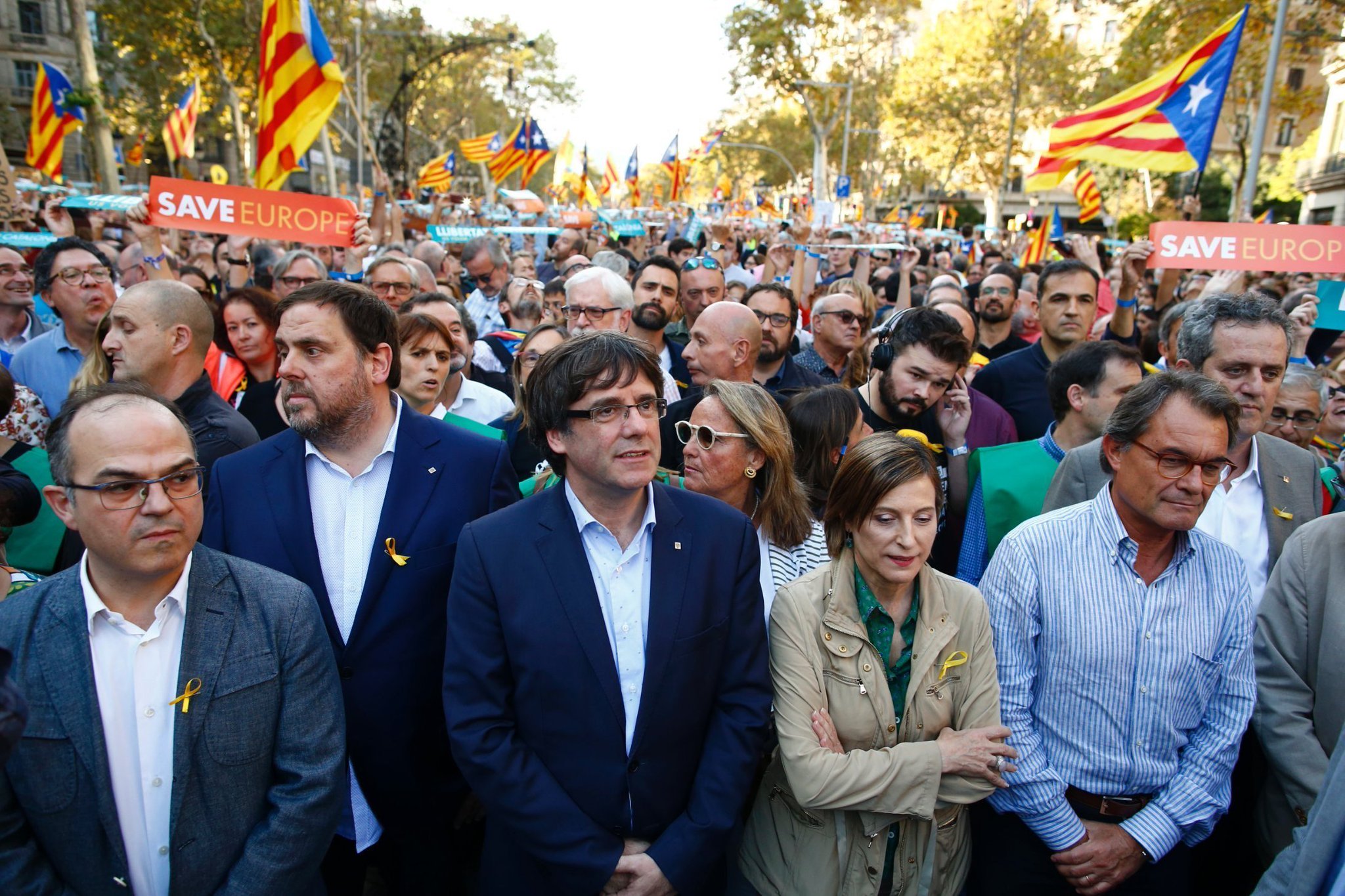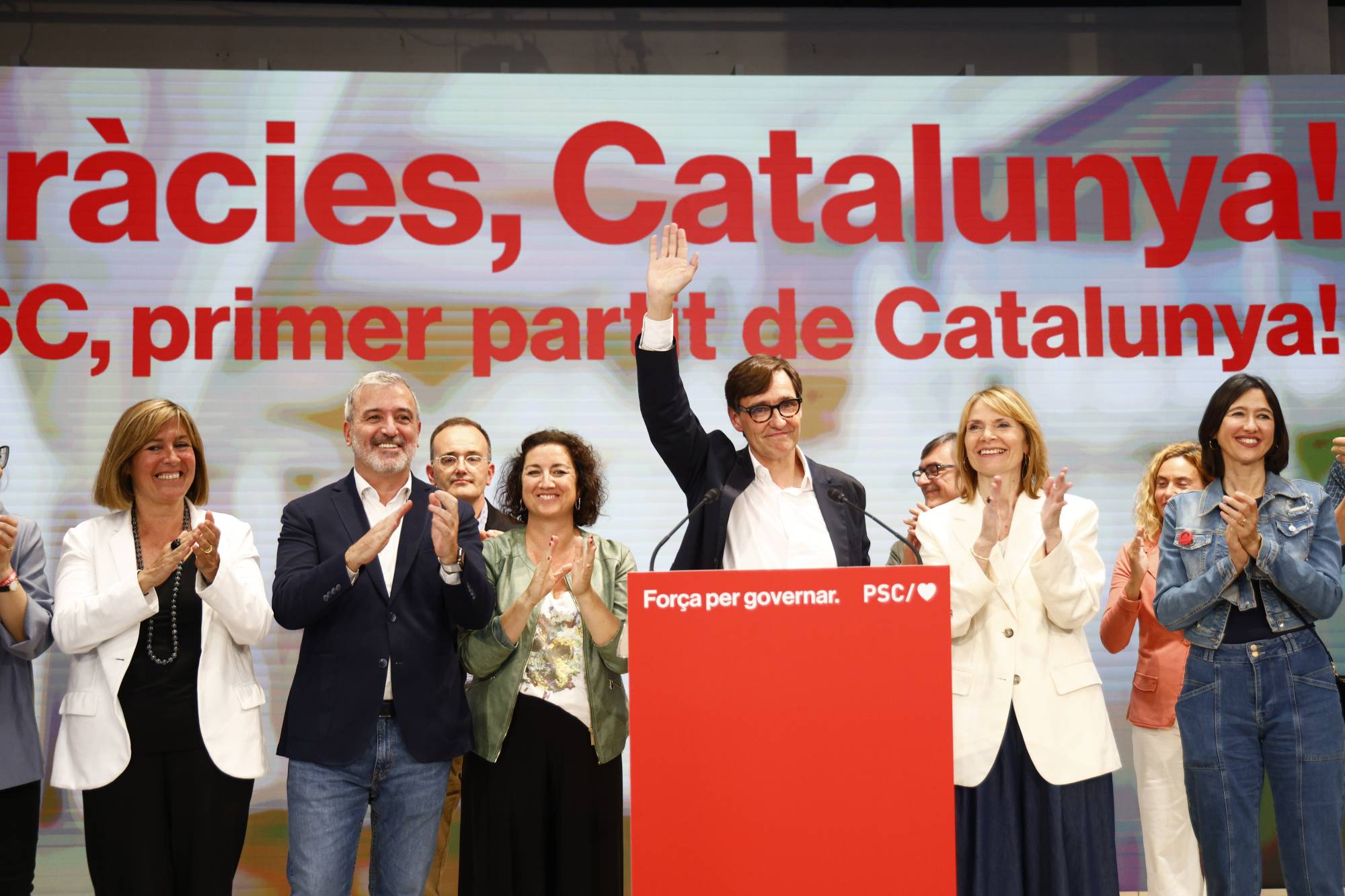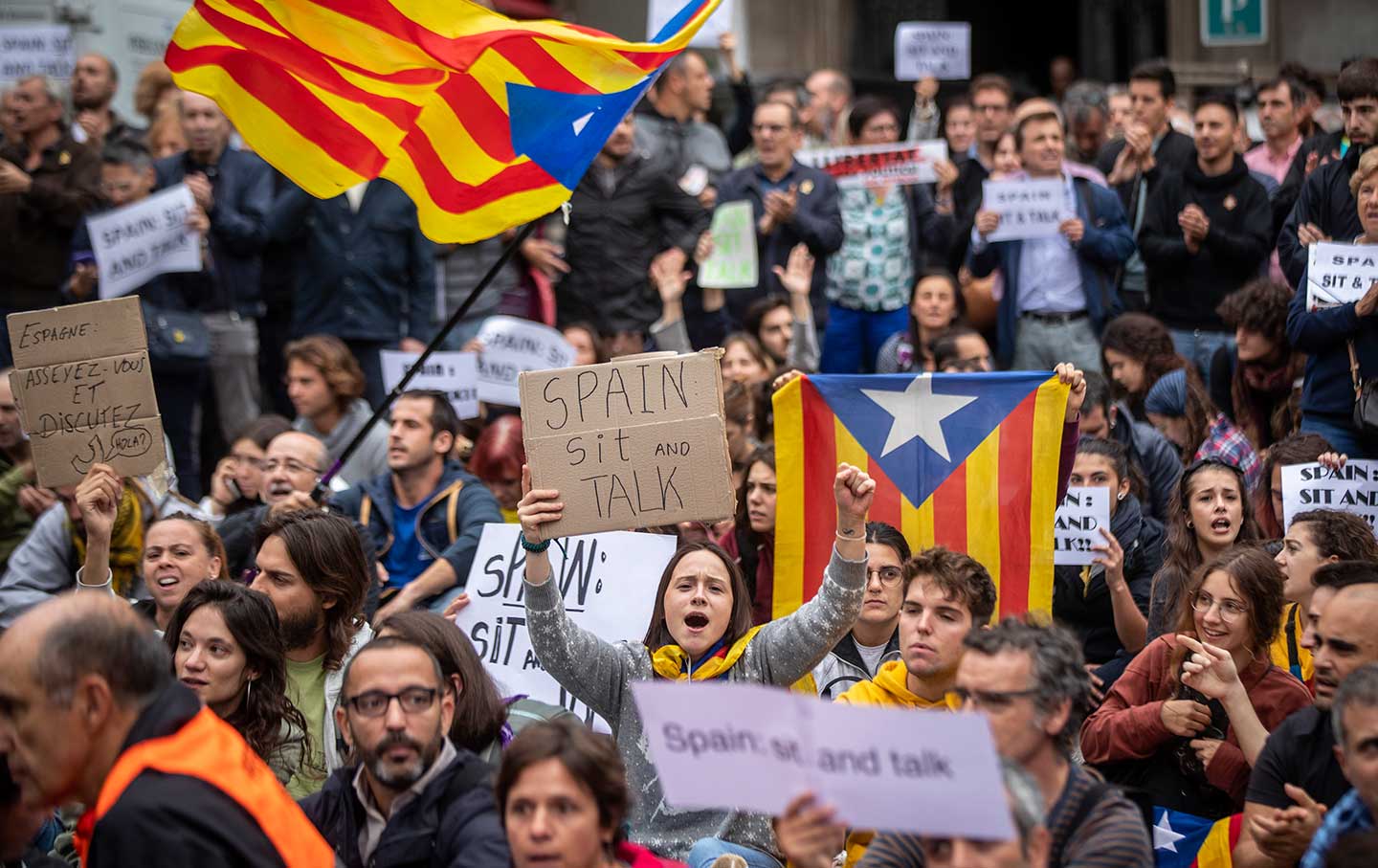Did Spain's Socialists Succeed in Breaking Catalonia’s Dreams of Secession?

“For the first time since 2012, Catalonia's pro-independence movement lost the regional majority.”
Spain's Socialists won the largest percentage of votes in Catalonia's regional elections, dealing a heavy blow to a government dominated by separatists for more than a decade.
The Catalan separatists won only 61 seats in the regional parliament, which consists of 135 seats, less than the 68 seats they need to form a majority, while the Catalan socialists won 42 seats, which means they will need to form alliances to form a government majority.
Spanish Prime Minister Pedro Sanchez considered the results of the Catalan elections a victory for him, simply because they removed the separatists who had ruled the region for about a decade, six years after the failure of the secessionist referendum, and the subsequent legal prosecutions of his supporters.
However, the defeat of the separatists may not accelerate the resolution of the country's political map, if post-election negotiations fail to reach an agreement to form a ruling coalition by next August, which may prompt new elections next October.
In recent months, the Spanish political scene has become very tense, as Sanchez, who came in second place in the May 23 elections, after his conservative rival Alberto Nunez Feijoo, was able to return to power thanks to the support of separatist parties.
Catalonia’s Elections
Once again, Spanish Prime Minister Pedro Sanchez has overcome a new crisis that has been besieging his party and government for years and has defeated all expectations that the Catalan regional elections would be the end of his reign and leadership on the Spanish political scene, the last stronghold of the left in the European Union.
The Catalan regional elections, which took place on May 12, 2024, resulted in a historic defeat for the separatist parties that ruled Catalonia for about 10 years.
The Socialists and their candidate in the region, Salvador Illa, managed to obtain 42 seats, while the hardline Together for Catalonia party came in second place with 35 seats, followed by the Catalan Republican Left with 20 seats.
The largest opposition party in Spain, the conservative People's Party, also achieved the largest increase in its electoral gains since the previous vote in 2021, as it was able to obtain 15 seats, up from three.
The far-right Vox party maintained its 11 seats, while Catalan Alliance, a new far-right party, entered the Catalan parliament for the first time with two deputies.
Although the socialists won the majority of votes in the previous regional elections in 2021, they were unable to form a majority, while the separatists came to power with a coalition consisting of 74 seats.
Addressing his supporters, a jubilant Illa declared a new era in Catalan politics and said it is my intention to become Catalonia’s next president.
In a message published on his X account, Sanchez congratulated Illa on this historic result achieved in Catalonia.
It is noteworthy that this unprecedented victory constitutes a strengthening of Sanchez's position and his approach to normalizing relations with Catalonia, which included issuing amnesty decisions after convictions and prosecutions related to the failed independence attempt.
This victory will also allow Sanchez to relaunch his new term that began last November.
The new term has so far been overshadowed by far right-wing opposition movements, and accusations of corruption and abuse of power by his wife, which prompted him to threaten resignation.
On the other hand, the still-exiled leader of the hardline Together for Catalonia party, Carles Puigdemont, attributed the defeat to weak separatist voter turnout, defending what he described as his party’s good performance, and adhering to the separatists’ ability to form a government.
Although the separatists are now trying to enter into a majority ruling coalition, Puigdemont recently claimed that he would seek to put together a minority pro-independence coalition.
It is noteworthy that the Catalan separatist movement is currently suffering from a sharp division in light of the discrepancy between the hardline Together for Catalonia party, and the Catalan Republican Left.

Ruling Coalition
The Socialists, led by Prime Minister Pedro Sanchez, succeeded in showing the decline in separatist sentiment in Catalonia, more than six years after the October 2017 secession attempt, one of the worst crises that contemporary Spain has witnessed.
But their candidate Salvador Illa, the former health minister during the Covid pandemic, will have to find allies to form a majority, something he was unable to do in 2021.
The coalition issue is of great importance to the Spanish Prime Minister because his leftist coalition lost its majority in the last elections that took place in the summer of 2023.
The minority government he currently leads depends on the support of Catalan separatist parties on the condition that an amnesty law is issued for those involved in the attempted secession of Catalonia in 2017.
According to analysts, the Catalan socialists are currently betting on an alliance with the Catalan Republican Left, the biggest loser in the elections, and with the non-separatist Left, an ally in the central government.
Puigdemont, in turn, confirmed that he was determined to try to form the new government, and that he was able to secure a larger majority than the socialists could form, and called on the Republican left to support him.
As for the People's Party, its spokesman confirmed that it would not support the Socialist Party in forming the regional government and continue colluding with Puigdemont, while the far-right party Vox considered that the victory of the Socialists was nothing but a continuation of the camouflaged secession of Catalonia.
This scene places the key to forming the new government in the hands of the Catalan Republican Left, which the socialists believe has no room for maneuver because preventing the Socialists from forming will lead to the fall of the central government, and calling for new general elections may bring the right-wing and far-right opposition to power and return the separatist crisis to point zero.
A record drought, not independence, is the number one concern among Catalans, according to the most recent survey by Catalonia’s public opinion office.
Some 70% of would-be voters now say that the management of public services, the economy, and climate change would drive their choice at the polls, while 30% say the question of independence was still their priority.
The opinion office said 50% of Catalans are against independence while 42% are for it, meaning support for it has dipped to 2012 levels. When Puigdemont left in 2017, 49% favored independence and 43% were against it.
Pablo Simon, a political science professor at Carlos III University in Madrid, said that the secessionist movement was in a period of uncertain transition.

Controversial Amnesty Law
Since becoming prime minister in 2018, nearly nine months after the failed separatist bid in Catalonia, Sanchez has worked to reset the gears caused by the unprecedented political crisis.
In 2021, he pardoned nine independence leaders for their role in the secession, and called for a new era of dialogue and understanding.
In November, he pushed for the adoption of a law to pardon those who were still wanted, in exchange for the separatists' support for him, granting him a new four-year term as prime minister.
This law will allow the return of Puigdemont, the leader who led the secession attempt before fleeing to Belgium to avoid legal prosecution.
Puigdemont had hoped to perform strongly in the recent elections, allowing him to return victorious as Catalonia's regional leader once the amnesty was passed.
On the other hand, the Spanish right, which considers Puigdemont the first enemy of the people, strongly objected to the amnesty law, accusing Sanchez of making himself a hostage of the separatists in order to remain prime minister.
The controversial law also prompted the right-wing and far-right opposition to take to the streets in massive protests.

On May 14, Spain's Senate, dominated by the right-wing opposition, voted to veto a controversial law allowing amnesty for Catalan separatists, necessitating its return to the Chamber of Deputies.
The People's Party submitted a proposal to veto the law granting amnesty to separatists participating in the failed independence attempt for Catalonia in 2017, as it was approved by a majority of 149 votes to 113.
But this vote is merely a symbolic measure to express rejection, according to Agence France-Presse, as the Spanish Senate is not authorized to invalidate draft laws, but rather to propose amendments to them or use veto power only.
The law must now be returned to Parliament, and it is expected to get the final green light there in the coming weeks.
The result of the Senate vote can be overturned by an absolute majority in the Parliament within two months of the law being returned, or by a simple majority once this period has passed.










